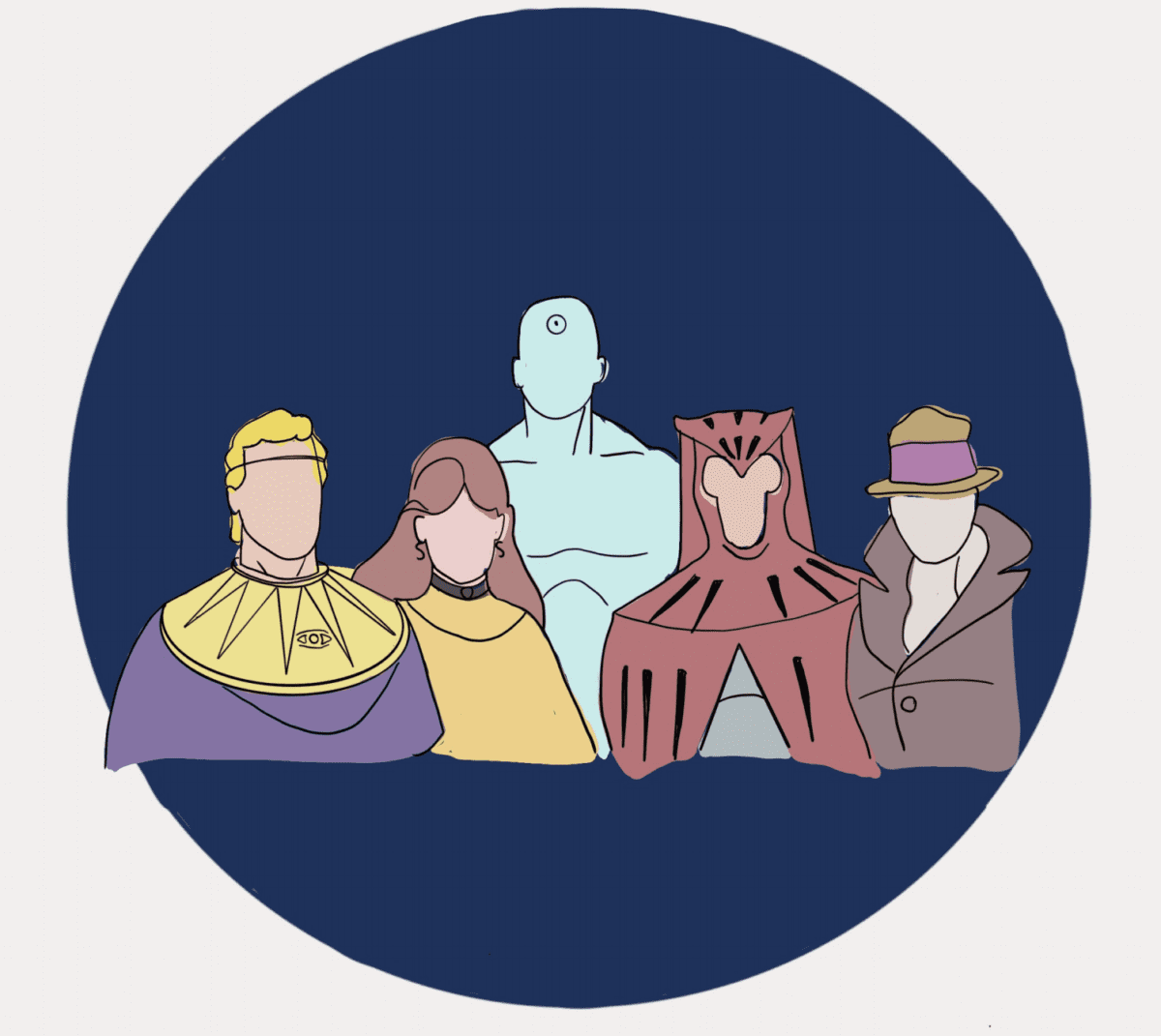I spent most of my one month at university before the coronavirus struck trying to convince one of my friends to read the graphic novel Watchmen. We made a deal that if she watched or read Watchmen I had to watch The Sound of Music (the worst trade deal of all time). I did my part and gave her my copy of the book. However, no matter how much I hyped it up or how highly I spoke of it she couldn’t bring herself to read it. I am still bitter to this day, especially because I read the Harry Potter books at her request (even though I will admit they are pretty great). I’ve spent a lot of time since wondering why she couldn’t do it.
I discovered Watchmen during the summer of 2019/2020 and devoured the 400-page graphic novel in just three days. I was in love. Lucky for me, the TV sequel series ended just as I finished the original and I managed to watch it in the following week, making sure to limit myself to one episode a day, not wanting to run out too soon. The story of Watchmen (both the original and the sequel HBO show) is a masterpiece, and all I wanted to do was share it with everyone I knew and force them to love it as much as I did. This was very, very naïve. My friend told me that she couldn’t bring herself to read a graphic novel (or a ‘comic book’ as she called it) about superheroes.
Watchmen is not about superheroes. It is about humanity.
Watchmen uses the idea of a world in which superheroes exist to tell a story that transcends class, gender, race and creed. After all, superheroes are nothing more than idealised versions of ourselves – people in brilliant costumes with limitless resources, seemingly superhuman abilities and a brilliance unmatched by any real human being. Who among us hasn’t dreamed of fighting crime like Batman, or doing battle like Wonder Woman, or flying high above the clouds like Superman?
Watchmen creates a world in which superheroes or ‘masked vigilantes’ exist, and through the course of the story it asks if a utopia for and by human beings can ever really exist. The world it builds and describes should be perfect as it is filled with people who have the power, intelligence and motivation to do good without any limitations. Instead, ‘saving the day’ is revealed to be bloody, ugly and disturbing and the closest thing we have to God sim- ply doesn’t care enough to act. Watchmen is about humanity’s struggle with itself and asks: if our goal is to create a perfect world and that utopia is revealed to be a fantasy, or an ugly distortion of itself – do we really deserve to exist?
The answer is yes, to that and many more questions that dominate the story and its characters. Watchmen is not only great television and a brilliant read but it offers an escape from our current crisis and would distract anyone from news of restaurants closing, governments in crisis to general misery. But more importantly, by the end of the story (all 400 pages and nine hours of it), it makes an impassioned argument for humanity and will inspire even the most cynical, depressed or disillusioned person to believe that deep down we can find solace in ourselves and that our lives are meaningful, because we live them. In the graphic novel a man with godlike powers chose to save the world, not because of any great government or charismatic lead- er, not for fame or fortune, but because he is reminded that human beings and their relationships, particularly their capacity for love, defy logic. In the HBO series, the most imaginative yet far-fetched and insane conspiracy theories shouldn’t demand an emotional reaction and yet they do because they are grounded by a love story which seems more human than most real relationships.
This is why I struggle when I hear that people choose to avoid Watchmen because they think it’s about superheroes or because they don’t like comic books. I accept that ‘masked vigilantes’ (as Watch- men chooses to refer to them) don’t work for everyone. And I know that comic books are not always easy to read or follow. But Watchmen is both more than the medium which presents it and is made richer for it. Everyone should experience this story. Not because it is a brilliant graphic novel, not because of its breadth of imagination, not even because of its characters or the impact it has had on the world. But simply because it offers hope, and in a time like this, when the world turns upside down, hope is more than enough.
We acknowledge the Ngunnawal and Ngambri people, who are the Traditional Custodians of the land on which Woroni, Woroni Radio and Woroni TV are created, edited, published, printed and distributed. We pay our respects to Elders past and present. We acknowledge that the name Woroni was taken from the Wadi Wadi Nation without permission, and we are striving to do better for future reconciliation.
